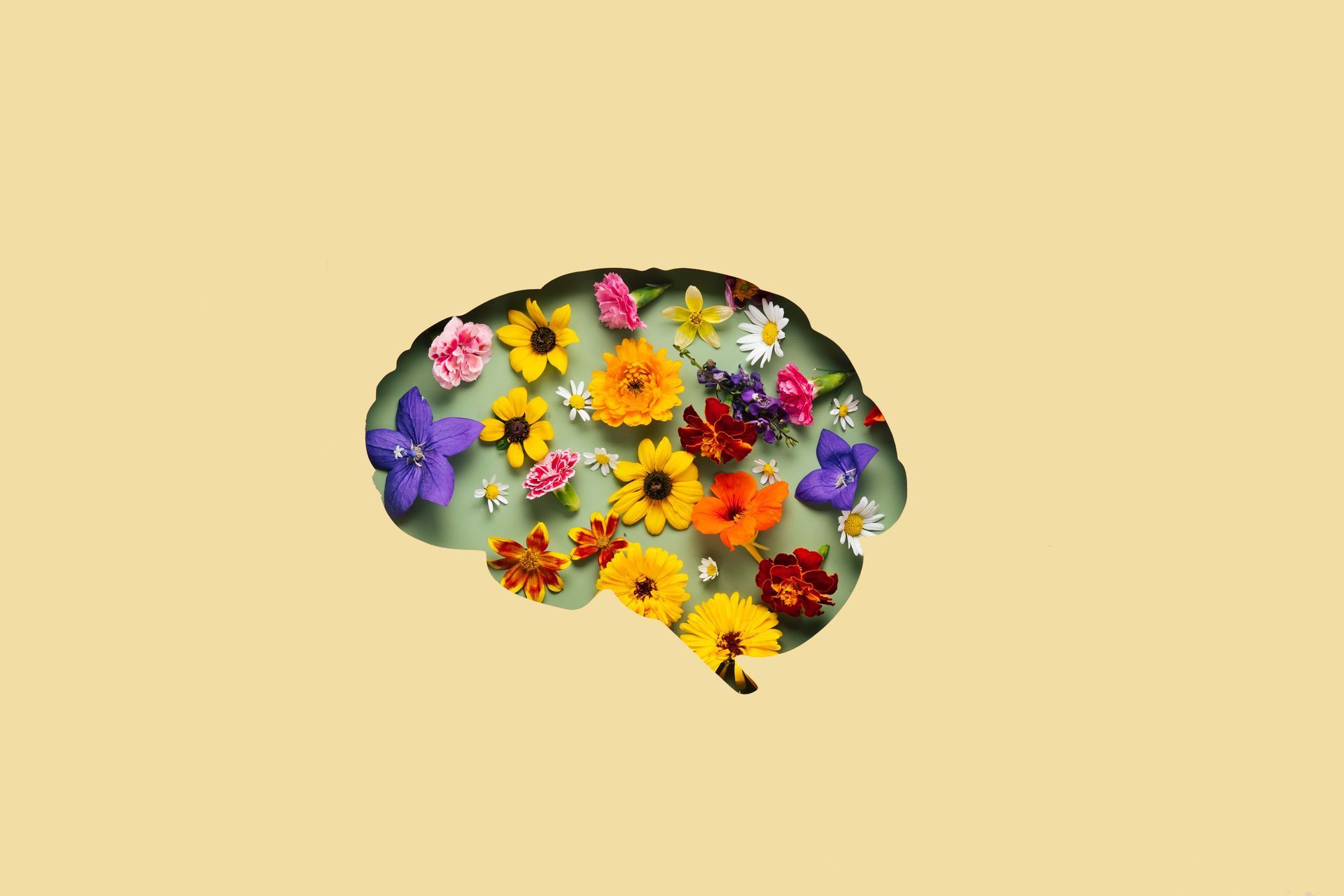Navigating Life's Challenges: Practical Tips from a Trauma-Informed Perspective
Transform your life with Erin Freeman's expert guide to healing and growth. This empowering article offers practical, trauma-informed advice for anyone facing life's challenges. Learn to rediscover your true self, embrace resilience, and foster well-being. Perfect for those ready to make meaningful changes and find hope in adversity. Start your journey to a healthier, happier you today.

Introduction
Hi there, I'm Erin Freeman, from But First, Heal Thyself. I am passionate about using therapy to empower women in early to mid-adulthood to rediscover their authentic selves through career, family, and life challenges. As we embark on this journey together through this article, my goal is to share with you not just my professional insights as a therapist, but also real, practical trauma-informed tips that can make a tangible difference in your life.
You might be here because life has thrown its fair share of challenges your way. Whether it’s the pressure of careers, the complexity of starting families, or just a nagging sense that life is zipping by, leaving you wondering about those dreams and aspirations you once had, I understand these feelings deeply.
My passion lies in guiding women like you, in early to middle adulthood, as you seek to rediscover and embrace your true self. This journey is about finding that flicker of hope and turning it into a flame. So, let’s dive into some valuable insights from a trauma-informed perspective, and start the process of healing and growing together.
What does it mean to be trauma-informed?
Let's start by understanding what being trauma-informed really means. Think of it as a lens through which we view our experiences and interactions. Being trauma-informed is about recognizing that many of us have experienced some form of trauma in our lives, and this trauma can significantly influence how we perceive ourselves and the world.
It’s not just about acknowledging that trauma exists; it’s about understanding the profound impact it can have on our mental, emotional, and even physical well-being. As a trauma-informed therapist, my approach is not to ask, "What's wrong with you?" but rather, "What has happened to you?" This shift in perspective is crucial. It helps us move from judgment to empathy, from isolation to connection.
When we start seeing our challenges through this trauma-informed lens, we begin a journey of healing that is compassionate, empathetic, and deeply rooted in understanding ourselves and our experiences. This understanding is the first step towards real, meaningful change in our lives.
How to practice self-care after trauma?
Self-care after experiencing trauma is not just a luxury; it's essential. It's about giving yourself permission to prioritize your well-being. But how do we practically do that? Let's break it down into simple, achievable steps.
Begin with the basics:
eat, sleep, move your body, and complete basic hygiene tasks.
Eating: If preparing and eating a meal feels overwhelming or nauseating, set timers to remind yourself to eat, and eat a small snack, until you feel ready to eat meals again. If you find yourself constantly eating as a means of coping with your pain, start by giving yourself some grace. You are using food as a tool to comfort yourself. It’s okay. Work to slowly incorporate other means of comfort into your life.
Sleeping:
Sleep is incredibly important to help us heal and regulate; however, it is often one of the most difficult challenges following a traumatic event as it’s often a time when intrusive memories, flashbacks, nightmares, and intense anxiety creep in. It’s important to create a sleep routine that feels safe and secure. Plan ahead and tap into your senses. Start with touch: Find items in your home that make you feel safe and comforted that you can sleep with. This could be a blanket, a shirt, a pet, or a trusted person. Move to vision: Choose lighting that feels safe to you, maybe having additional light in your room feels safer or maybe complete darkness feels more peaceful. Smell: Find a scent that is calming to you. You can utilize sleep safe candles or essential oils. Lavender, jasmine, chamomile, vanilla, and rose are naturally calming scents. Sound: Sometimes silence can feel extremely overwhelming following a traumatic event. Try listening to a meditation for sleep or calming music to help yourself fall asleep.
Moving:
Movement helps our minds and bodies release tension and stress. Maybe today, you can walk back and forth inside your home a couple of times, do that, and work your way up to increased movement.
Hygiene:
If you feel like you don’t have the energy to shower or if a shower is triggering for you, start with washing your face, brushing your teeth, or changing your clothes. These may feel like small steps, but they take strength and courage, honor where you are in this moment and celebrate each action you are able to take.
It's Unique To You:
understand that self-care is personal. What works for one person may not work for you, and that's okay. Start by identifying activities that make you feel relaxed and rejuvenated. It could be as simple as taking a long bath, reading a book, standing outside to feel the sunshine, or going for a walk. The key is consistency – make these activities a regular part of your routine.
Mindfulness:
Next, consider mindfulness practices like meditation or yoga. These practices help ground you in the present moment, providing a break from past traumas and future anxieties. They also teach you to observe your thoughts and feelings without judgment, which is incredibly empowering.
Setting Boundaries:
Lastly, self-care also involves setting boundaries. Understand your limits and recognize when you need a break. This isn’t selfish; it's necessary. By taking care of yourself, you're building a resilient foundation to better face life's challenges.
What are some coping strategies for trauma?
Coping with trauma is a personal journey, and it's important to find strategies that resonate with you. Here are some effective ways to cope that I often discuss with my clients:
Expressive Writing or Journaling:
Writing can be a powerful tool. It allows you to express emotions and thoughts that might be too difficult to say out loud. Journaling provides a private, safe space to process these feelings.
Embrace Your Emotions:
Your feelings, whatever they may be, are valid. It is important to allow yourself to feel and express them.
Mindfulness Techniques:
Practices like deep breathing, meditation, and mindfulness can help bring you back to the present moment, especially when you're feeling overwhelmed by traumatic memories.
Grounding Techniques:
Grounding techniques orient us to the present moment, taking us out of past traumas. Use the concept of duality to tune into your senses. At times you may need your senses to be comforted, at times, you may need them to be shocked to bring you back to the present. Touch: Calming: Feel your feet pressing into the floor, hold and squeeze a smooth rock, pet a soft comfort object. Shocking: Hold an ice cube, wash your face with hot water. Sight: Calming: Look at a picture of a loved one or peaceful scene. Sound: Calming: Play peaceful music, listen to sounds of nature. Shocking: Play loud, intense music. Smell: Taste: Calming: Eat a food that is comforting to you or elicits good memories. Shocking: Eat a sour candy.
Engaging in Physical Activity:
Exercise releases endorphins, which can boost mood and reduce stress. It doesn’t have to be intense; even a daily walk can make a significant difference.
Building a Support System:
Surrounding yourself with understanding friends, family, or support groups can provide a sense of community and understanding.
Seeking Professional Help:
Sometimes, coping on your own isn't enough, and that's okay. Therapists, especially those trained in trauma, can offer guidance and strategies tailored to your unique experience.
Coping with trauma is not a one-size-fits-all process. It's about finding what works for you and allowing yourself the time and grace to heal.
How to find support dealing with past trauma?
Finding the right support to deal with past trauma is a critical step in your healing journey. Here are some ways to seek out the help that best suits your needs:
Professional Therapy:
Seeking a therapist, particularly one who specializes in trauma, can be transformative. Therapy provides a safe space to explore your experiences and learn coping mechanisms. Don't hesitate to ask potential therapists about their experience with trauma and their approach to ensure it aligns with your comfort level.
Support Groups:
Sometimes, talking with others who have had similar experiences can be incredibly normalizing, validating and comforting. Support groups offer a sense of community and understanding that you might not find elsewhere. Look for local groups or online communities focused on trauma and healing.
Online Resources and Hotlines:
There are many online resources, including websites, forums, and articles, that provide valuable information and support. Additionally, crisis hotlines can offer immediate assistance and guidance.
Friends and Family:
While they may not always understand the full extent of your trauma, friends and family can offer emotional and practical support. Just having someone to talk to, who listens and cares, can make a big difference.
Seeking support is a sign of strength, not weakness. It’s about taking control of your healing process and moving towards a healthier, more resilient you.
What are the signs of unresolved trauma?
Recognizing the signs of unresolved trauma is an essential step in seeking help and beginning the healing process. Here are some common indicators:
Intrusive Memories:
This might include flashbacks, nightmares, or intense, unwanted memories of the traumatic event.
Avoidance:
You may find yourself avoiding people, places, or activities that remind you of the trauma, or even avoiding thinking about the traumatic event. You may find yourself detaching from others, even people you are typically close to.
Changes in Mood and Thought Patterns:
This could manifest as negative thoughts about yourself or the world, feelings of hopelessness, overwhelming guilt or shame, memory problems, or intense, unexpected emotions such as irritability, anger, or pervasive sadness and crying.
Physical Symptoms:
These can include being easily startled, feeling always on guard (hyperarousal), insomnia, fatigue, headaches, stomachaches, tinnitus, and body tension.
If these signs sound familiar, it’s important to acknowledge them. Recognizing these symptoms as signs of unresolved trauma is the first step towards seeking help and starting the journey to healing.
What is trauma-informed mindfulness?
Trauma-informed mindfulness is a specialized approach to mindfulness that takes into account the unique experiences of those who have endured trauma. It's about practicing mindfulness in a way that's sensitive to the potential triggers and challenges that trauma survivors might face.
This form of mindfulness focuses on helping you stay grounded in the present moment while acknowledging and respecting your past experiences and ways in which they can influence your present experience. It often involves exercises that gently encourage awareness of the body and breath, which can be particularly helpful in managing the symptoms of trauma.
For example, a simple breathing exercise where you actively think “I am breathing in” as you breathe in and “I am breathing out” while you breathe out, can help ground you when you’re feeling overwhelmed. The key is to engage in these practices without judgment, acknowledging when your mind wanders and allowing yourself to gently redirect your focus back to the present.
Trauma-informed mindfulness is not about erasing or ignoring your past experiences, but about building a compassionate space for yourself in the here and now, where healing can begin.
How to create a trauma-informed daily routine?
Creating a trauma-informed daily routine is about integrating practices into your day that acknowledge and respect your trauma experiences, while also fostering a sense of safety and stability. Here’s how you can do it:
Start Your Day Mindfully:
Begin with a simple mindfulness exercise or a few moments of deep breathing to set a calm tone for the day. There are many free apps that have short mindfulness practices to relieve the stress of guiding yourself.
Incorporate Regular Breaks:
Schedule short breaks throughout your day for grounding exercises. This could be deep breathing, stretching, or a brief walk.
Set Realistic Goals:
Make a to-do list that's achievable. Overwhelming yourself can trigger stress, so keep it manageable. Celebrate task completion, no matter how small. Remember that today’s best in terms of what you are able to do may not be the same as yesterday’s best or tomorrow’s best, and that’s okay.
Engage in Physical Activity:
Include some form of movement in your routine, whether it’s yoga, a walk, or light exercise, to help release tension.
End with Reflection:
Spend a few minutes each evening reflecting on your day. Acknowledge what went well and what you might want to approach differently tomorrow.
This routine isn't about rigidly scheduling every moment, but about creating a framework that gives your day structure and predictability, which can be incredibly reassuring when you’re navigating trauma recovery.
What are effective trauma therapy techniques?
Navigating the path to healing from trauma can be complex, and effective therapy techniques play a crucial role. As a therapist, I utilize a range of methods, each tailored to individual needs. Here are some effective trauma therapy techniques that I integrate into my approach:
Brainspotting:
Brainspotting allows for the reprocessing and release of stored trauma in the body and for clients to move from a chronic state of dysregulation to a state of regulation. Brainspotting bypasses the neocortex (the thinking part of the brain) and works within the subcortical brain (the part of the brain that distinguishes between safety and danger and is responsible for regulation). This process allows for therapy to be successful in the long term.
Polyvagal Theory:
Polyvagal theory allows clients to learn skills for regulation of the nervous system, effective threat assessment, and increased connectivity, resulting in a reduction of feelings of stuckness, increased connection with self and others, and increased hopefulness.
Somatic Experiencing:
This approach focuses on bodily sensations rather than solely on thoughts and memories. It helps in releasing physical tension that remains in the body after trauma.
Dialectic Behavioral Therapy:
While this form of therapy does not directly treat traumatic experiences, it focuses on learning skills such as mindfulness, emotion regulation, distress tolerance, and interpersonal effectiveness, each of which are crucial in the healing process.
The most effective therapy is one that feels right for you. It’s about finding a technique that resonates with your personal experiences and journey towards healing. Many skilled trauma informed therapists utilize an eclectic approach in order to meet each client’s individual needs.
How to help a loved one navigate trauma?
Supporting a loved one through their trauma can be challenging, but your support can make a significant difference in their healing journey. Here’s how you can help:
Listen Without Judgment:
Offer an empathetic ear. Let them know they’re not alone and that you’re there to listen, not to judge or offer unsolicited advice.
Encourage Professional Help:
Gently suggest seeking help from a therapist. Emphasize that it’s a sign of strength, not weakness, to ask for professional support.
Educate Yourself About Trauma:
Understanding what trauma is and how it affects people can make you a more empathetic supporter. It helps in understanding their reactions and needs.
Offer Practical Support:
Sometimes, the best support is practical help, like running errands or cooking a meal. These small acts can alleviate stress for someone experiencing trauma.
Respect Their Boundaries:
Trauma can affect how someone interacts with the world. Be mindful of their comfort levels and respect their boundaries, even if they change over time.
Be Patient:
Healing from trauma is a process that takes time. Your patience and ongoing support can be a stable foundation during their journey of healing.
While you’re offering support, it’s also important to take care of yourself. Supporting someone through trauma can be emotionally taxing, so ensure you have your own support system in place. Loved ones of individuals who have experienced trauma often seek their own therapy as it can change your relationship with the other person and be difficult to watch someone you care endure intense pain.
What is the impact of trauma on relationships?
Trauma can profoundly affect relationships, influencing how we connect with others and perceive the world around us. Understanding this impact is crucial for both those experiencing trauma and their loved ones. Here are some ways trauma can affect relationships:
Difficulty Trusting Others:
Trauma can lead to difficulties in trusting others, which can be challenging in forming and maintaining close relationships.
Communication Challenges:
People who have experienced trauma might struggle with expressing their feelings or needs, which can lead to misunderstandings or conflicts in relationships.
Heightened Emotional Responses:
Trauma can cause intense emotional reactions like irritability, anger, or sadness, which can be confusing or overwhelming for the individual and their loved ones.
Withdrawal and Isolation:
Some individuals may withdraw and isolate themselves as a coping mechanism or means of seeking safety, impacting their social interactions and relationships.
Overdependence:
Conversely, some may become overly dependent on their relationships, seeking constant reassurance and support.
Intimacy Issues:
Trauma, can affect one’s ability to engage in intimate relationships, both emotionally and physically.
It's important to recognize these challenges as part of the trauma response. Healing from trauma often involves learning how to navigate and improve relationships. For loved ones, understanding these impacts and responding with empathy, patience, and support can be incredibly beneficial in helping the person heal and rebuild trust in relationships.
Conclusion
As we wrap up our discussion, remember that navigating life's challenges with a trauma-informed perspective is a journey of understanding, healing, and growth. Whether it's practicing self-care or finding effective coping strategies, each step you take is a move towards reclaiming your authentic self. If you've seen yourself in any part of this article, know that you're not alone and that healing is possible. My door at But First, Heal Thyself is always open for guidance and support. Embrace your journey with hope and courage, and remember, the path to healing begins with that first step forward.
Ready to take the next step towards healing and self-discovery? I invite you to book a free consultation with me, Erin Freeman, at But First, Heal Thyself This is your opportunity to start a conversation in a safe, supportive environment, where your journey towards healing is honored and guided with care. Whether you're seeking to understand the impacts of trauma, explore coping strategies, or simply need a compassionate ear, this consultation is the perfect starting point. Let's work together to rediscover your strength.
Click here to book your free consultation today and embark on a transformative journey towards a healthier, happier you.
Recent Articles:


Feel Free To Share on:
Book a Free Consultation Today

Erin Freeman
Licensed PROFESSIONAL COUNSELOR
Hello! I am Erin
I hope this article was able to help you in any way. If you would like to chant more about the challenges you are going through, Book a free consultation and I would be happy to meet you :)
See our other articles



